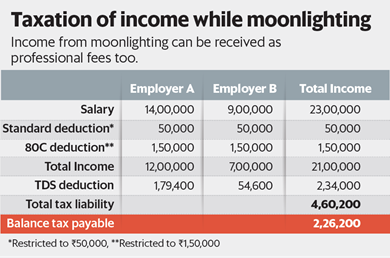Free Courses Sale ends Soon, Get It Now


Free Courses Sale ends Soon, Get It Now



Disclaimer: Copyright infringement not intended.
Context
Details
Does Any Law Prevent Dual Employment?
Takes of Employees and Employers
Concerns of the Companies
Tax implications of Moonlighting

Reasons that lead to Moonlighting
Seeking job satisfaction
Pandemic
Post Pandemic
Incapacity of Governments
Final Thoughts and Way Ahead
© 2024 iasgyan. All right reserved